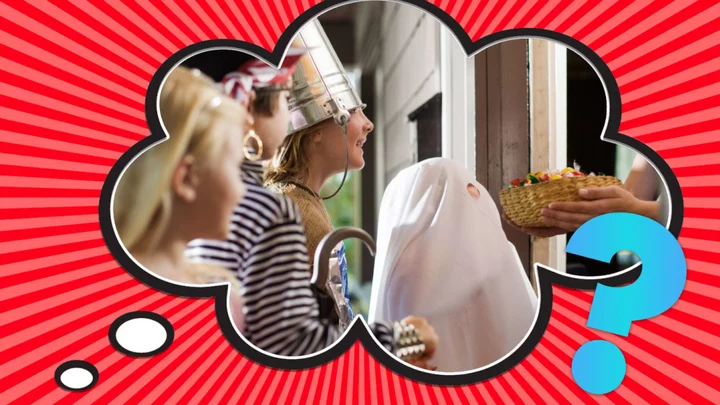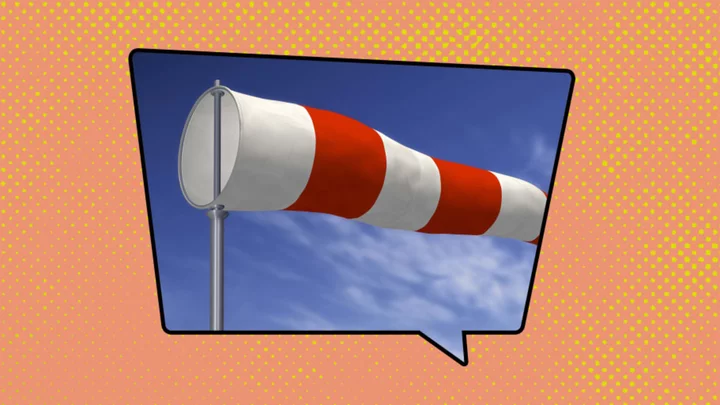For nearly 50 years, residents of Chesapeake, Virginia, had an ordinance against having fun. The town, which is roughly 13 miles from Norfolk, disallowed children over the age of 12 from going trick or treating on Halloween. Teens caught violating the rule would be ordered to pay $100 or serve six months in jail.
Excessive? Perhaps. In fact, no one is on record as having been fined or arrested. But it does invite a question: How old is too old to go trick or treating? It depends on who you ask, and where you are.
Trick or Threat
In some communities, there’s an age cut-off that’s less about seasonal etiquette and more about placating anxious residents. Several towns in Virginia, including Chesapeake, Suffolk, and Virginia Beach, have enacted age limits. In Belleville, Illinois, no kids over 12 can wear a mask, and high schoolers can’t visit homes for the purpose of exacting treats. In Upper Deerfield Township, New Jersey, kids are cautioned against heading out to knock on doors if they’re over 12.
For these areas, age limits are intended to discourage older kids from being too mischievous. In Chesapeake, the ban came after an incident involving older children planting fireworks into trick or treat bags and causing minor injuries. According to Chesapeake spokesperson Heath Covey, the incident happened in 1968. (A similar “trick” was reported in Watertown, South Dakota, in 1965.)
In Belleville, the ordinance was signed in 2008 by mayor Mark Eckert, who cited older teens unnerving seniors by knocking on their doors late at night. “We had a few situations in those years where seniors had called the police because they felt very threatened by the large number of kids who were on their front porch and getting very aggressive in some cases,” Eckert told Slate in 2019. “They seemed like they felt like they were going to force their way into their home.”
But should a few proverbial bad apples spoil the bunch? While most kids stop trick or treating of their own volition between the ages of 12 and 16, there’s no standard age when it stops being fun. Speaking with Parents.com, psychologist Vanessa Lapointe warned that age restrictions for trick or treating might be more about homeowners not wanting to deal with teens than what kids actually prefer. An arbitrary cut-off, she argued, ignores that some children might still want to go out.
“Children are so unique from one to the next that there could be a few years between when two children of the same age are done with trick-or-treating,” Lapointe said. A 14-year-old might declare themselves too old to hoard candy; another 14-year-old might not. This is particularly true, Lapointe added, for children who may have developmental challenges.
One might also follow the advice of the etiquette gurus at the Emily Post Institute, who remind grumpy adults that trick or treating may be one of the last rituals of childhood that teens are able to enjoy before succumbing to the crushing weight of adulthood. Provided they’re polite, the Institute argues, there shouldn’t be any restrictions on age. What’s more, adults can always turn off their porch light if they're uncomfortable with visitors.
Halloween’s Role in Free Speech
But what if your community is steadfast in banning teen treaters? You could always turn it into a First Amendment issue. Writing for the nonprofit law organization Pacific Legal Foundation in 2019, attorney Daniel Ortner argued that prohibiting candy soliciting on Halloween was tantamount to regulating free speech.
“The Supreme Court has repeatedly upheld the right of individuals to engage in door-to-door solicitation for a variety of causes, including expressive activity and charitable fundraising,” Ortner wrote. “Trick-or-treating is consistent with this tradition of expressive door-to-door activity. A trick-or-treater’s costume can be a form of speech protected against government censorship. Costumes are a way for people to express their likes and dislikes, and even to comment on politics and social issues.”
No matter what side you’re on, trying to legislate Halloween is probably not the way to go. If communities are concerned about mischief, they can always police vandalism or other nuisances just like any other day, or even set a curfew. But banning kids from being kids is likely to prove futile. In 2019, following a barrage of negative press, Chesapeake updated their ordinance to remove the potential for jail time. They also raised the age limit. Trick or treaters can now be as old as 14 before they’re no longer allowed to have any fun.
Have you got a Big Question you'd like us to answer? If so, let us know by emailing us at bigquestions@mentalfloss.com.
Related Tags
KIDS FUN HALLOWEEN LAW CANDY BIG QUESTIONS NEWS POLITICS HOME WRITING Home / BIG QUESTIONS








